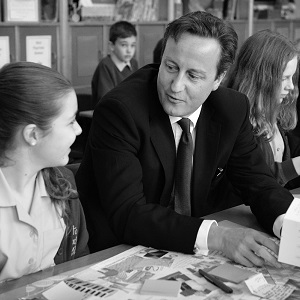Cameron’s speech: the gulf between words and deeds
Praising the contribution of immigrants to the country, celebrating progress on equality and promising to finish the fight to end social injustice. An all-out assault on poverty and its causes, a national crusade to get young people into home ownership;...
Praising the contribution of immigrants to the country, celebrating progress on equality and promising to finish the fight to end social injustice. An all-out assault on poverty and its causes, a national crusade to get young people into home ownership; all cheered to the rafters by the conference hall.
If that was written in any other year, it could only describe a barnstorming speech at Labour conference. Instead, it’s the speech given by the leader of the first Conservative majority government in nearly two decades.
Today David Cameron has completed the project he started in 2005. To claim for the Conservative Party the mantle of social reform, to be – in rhetoric at least – the party of equality, opportunity, diversity and fairness. In one speech, he has positioned the Tories as the reformers who own the future.
If Cameron’s actions now match his rhetoric then Labour must support them, no matter how hard that will be to swallow. Indeed, the party must see it is the ultimate victory of the last Labour government that social justice is now the centre ground of British politics.
If Labour is to be a responsible, effective opposition, it must make sure Cameron lives up to his words and delivers on the things he claims to care about. As a strong alternative government we must support what is good, urge him to go further, be bolder where we can and highlight what is going wrong. Eradicating poverty and reducing inequality is why our party exists. We cannot stand and complain from the side lines just because it is a different party achieving this.
However, Cameron’s record suggests he will fail once again to live up to these warm words.
After a decade of progress by Labour, reductions in child poverty have now stalled, leaving 3.7 million children growing up in relative poverty. Since 2010 half a million more children in Britain live in absolute poverty.
When Labour left office, a pensioner was no more likely to be in poverty than anyone else in the country. Today 1.6 million are below the poverty line, with 900,000 in severe poverty.
Despite today’s speech, Cameron’s Conservative government prefers to redefine poverty rather than end it. It prefers to take housing benefit away from under 25s over dealing with soaring rents and unaffordable property prices. It prefers ever greater sanctions over real welfare reform to help the long-term unemployed into sustainable work. It prefers con tricks over a true plan to end low pay. This Conservative government prefers scare-mongering on migration to a pro-business plan to attract the best and brightest to Britain.
And yet the narrative is now one of a caring, compassionate party. A party of the future and of one nation focused on social justice, on equality and on opportunity for all. Never mind having their tanks on the lawn, Tory artillery is now all the way inside our house.
The tragedy for Labour is that we let this happen. We have allowed the Tories to wear our clothes and claim to be more compassionate, more caring than us. By assuming the mantle of social reform would always be ours, we have let Cameron claim it as his own.
However, Cameron has just given Labour its best opportunity since the general election. People are cynical about politics and distrustful of political promises – if the prime ministers’ actions fail to live up to his soaring rhetoric, all of the moderates he has charmed will turn against him. Only a Labour Party, grounded in the common good, can seize this opportunity, and once again becoming the force for progressive change in Britain.
